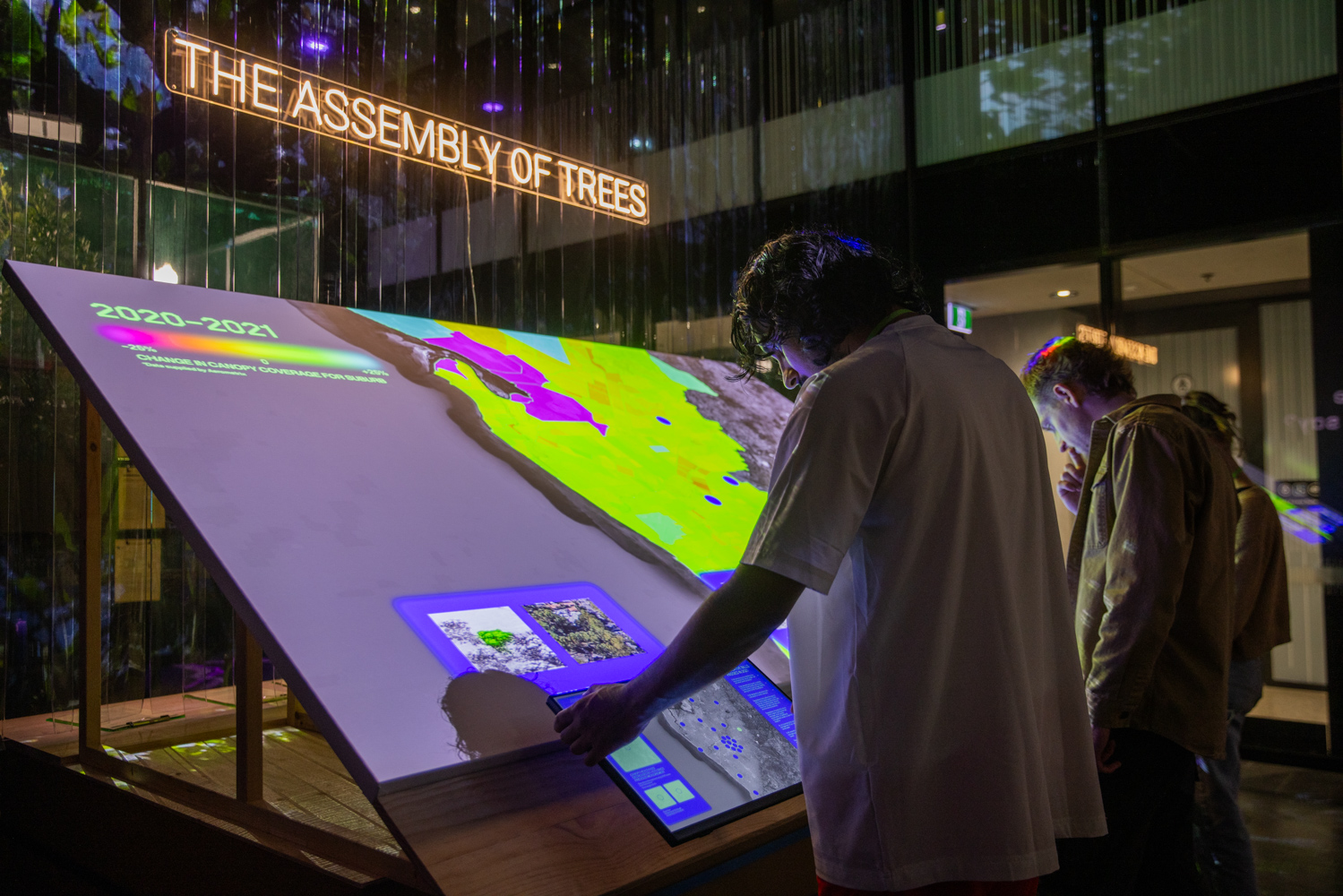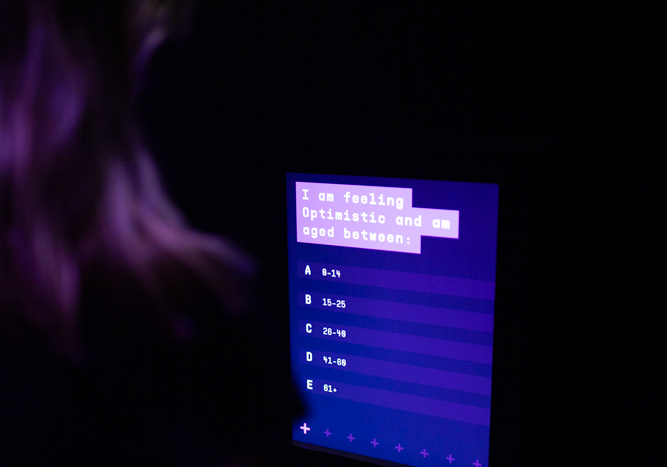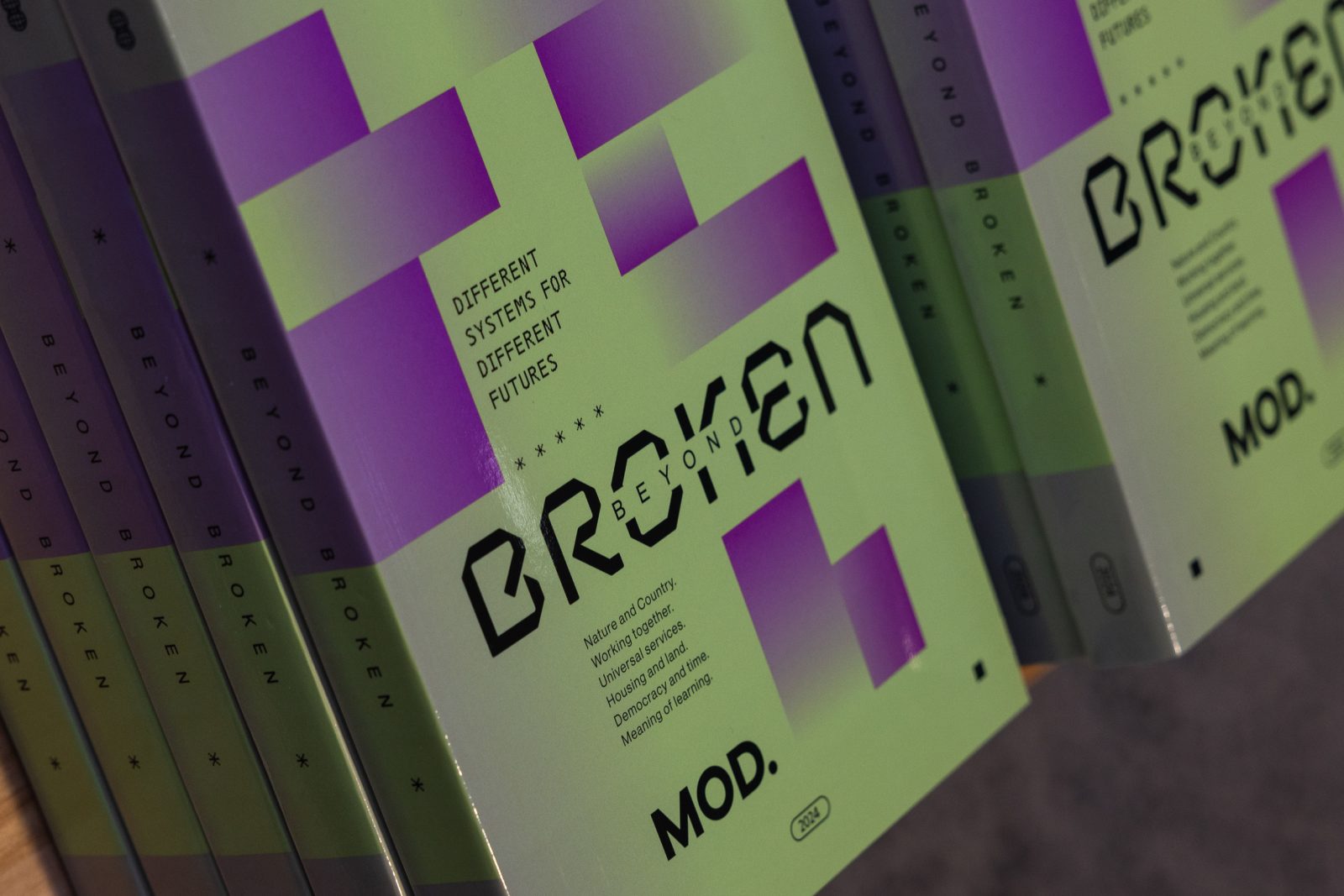Want to give the future a voice?
Make it a career with UniSA

Exhibit Details
Open JanNov 2024
- What if the future had a voice?
- Delve Deeper
Do you ever wonder what future people will think of us? Will they approve or disapprove of our decisions? We can’t ask them, but we can consider how our decisions will affect their survival and ability to flourish.
Our five Time Commissioners are doing just that, covering ground from the present day up to 60,000 years into the future. What does medicine look like in 20 years? How about work in 100 years?
Hear what the Commissioners have to say about climate, technology, education, culture, Country and more.
If we knew in advance how our actions would affect those to come after us, how would we act?
Decisions we make in the present will impact the lives of future generations.
The Time Commissioners are responsible for thinking over perspectives of time that are often overlooked in our current short term political or economic decision making.
Long-termism is the ethical view that positively influencing the long-term future is a key moral priority of our time. This view places the responsibility on those living now to ensure that future generations survive and flourish.
Philosopher Nick Bostrom asks how we can trace out the links between actions that people take today and really long-term outcomes for humanity — outcomes that stretch out indefinitely into the future. He calls this effect ‘macrostrategy’, i.e., the really big strategic situation for having a positive impact on the long-term future.
American sociologist Elise Boulding explains her concept of a 200-year present as a way of thinking about change:
“The 200-year present began 100 years ago with the year of birth of the people who have reached their hundredth birthday today. The other boundary of the 200-year present, 100 years from now, is the hundredth birthday of the babies born today. If you take that span, you and I will have had contact with a lot of people from different parts of that span. So think in terms of events over that span and realise how long change takes. You can see how difficult it has been to create these bodies and new ways and how in many ways we are slipping backward; but in other ways we are not. I take comfort to know that super-power hegemony has a very limited lifespan (decline and fall of Rome, the Ottoman Empire).”
Read
- How legal principles shed new light on human rights of future generations
- The future of everyday democracy
- About NationStates
- The Official Unofficial Voting Station: Voting for All Who Legally Can’t
- Democracy Pioneers
- Participatory Democracy
- A job for future generations
Accessibility
Credits
- Merlin Screen content
- Sean Williams Script
- Claire G. Coleman Script
- Jack Nicholls Script
- Exhibition Studios Build











